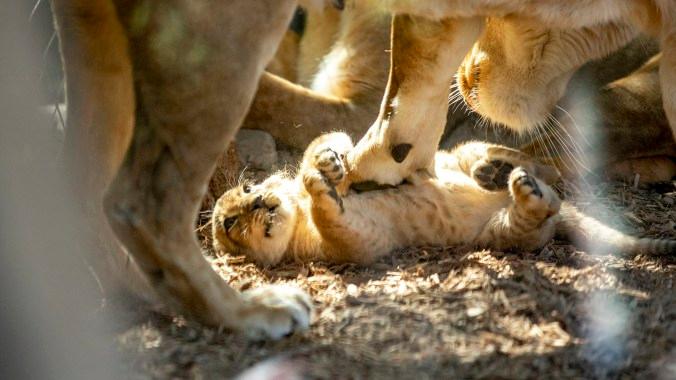
Gorillas, big cats and other mammals will soon be vaccinated at the Denver Zoo for COVID-19.
“We're just trying to be as responsible as we can in terms of providing them protection,” said Dr. Scott Larson, vice president of animal health at the Denver Zoo. “
He said that the zoo cares for animals that are endangered or threatened species.
“Individuals getting sick or dying can have a really profound impact on the population,” Larson said.
From the start of the pandemic, epidemiologists have cautioned that some animal species could become a reservoir for the COVID-19 virus to live and mutate. Vaccinating animals is another step in stamping out the virus.
However, the animal vaccine, which is not the same as the ones used in humans, is still in an experimental stage and isn’t yet recommended for housepets.
Large mammals like gorillas and big cats are near the top of the list for vaccinating. Larson said the zoo will get about 20 doses in the coming weeks from the veterinary vaccine company Zoetis, which is donating thousands of doses to zoos, sanctuaries and government entities across the country. Larson anticipates that as many as 100 animals could be vaccinated over the coming months.
“We are in connection with other zoos throughout the country, as well as the Zoetis for communicating with each other as the vaccines get rolled out,” Larson said. “So we'll be paying very close attention to what's happening at other institutions throughout the U.S. and then making determinations.”
The Oakland Zoo in California has already started vaccinating tigers, black bears, grizzly bears, mountain lions and ferrets, next up are primates, including chimpanzees, fruit bats and pigs. The Zoetis vaccine has been authorized for experimental use on a case-by-case basis by the United States Department of Agriculture and state veterinarians.
No animals have contracted COVID-19 at the Denver Zoo, but there have been animals at other zoos in the U.S. that have. The first case was in a lion at the New York Zoo. There have also been reports of house pets who’ve gotten the virus, cats appear to be more susceptible than dogs.
“From what we've seen, it's been very similar to the signs that have been seen in people. They have been predominantly respiratory signs, some increases in body temperature, animals not wanting to eat, probably because they're just not feeling well,” Larson said.
In Denmark, the virus shifted from humans to mink and then back to humans. The Danish government decided to kill millions of mink because of concerns over the virus.
At the Denver Zoo, Larson said many of the animals are trained to receive vaccines, those animals will be vaccinated and then rewarded. For animals who are not trained or harder to vaccinate, Larson said they will couple vaccination with other routine health procedures or check-ups to minimize trauma from getting vaccinated.
- How many Coloradans are vaccinated? Colorado Narrowly Met Biden’s July 4th COVID-19 Vaccine Goal With 70.04% Of Adults Vaccinated
- Do I need to wear a mask anymore? In Colorado, “If You’re Vaccinated, You Don’t Need To Wear A Mask,” Polis Says
- Can I get time off work to get my shot? Colorado Employers Have To Give Paid Time Off For COVID-19 Vaccinations
- What are the side effects like? Here's What To Expect From The COVID Vaccine (And Why It Still Beats Getting Sick)
- What about masks on college campuses? Both The University Of Colorado Boulder And Colorado College Have Ended Their Mask Mandates
- Colorado’s $1 million vaccine drawings are almost over. So, Did They Convince Anyone To Get The Shot?








